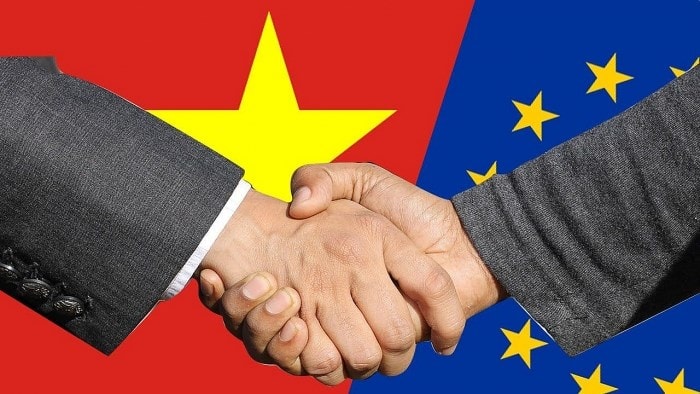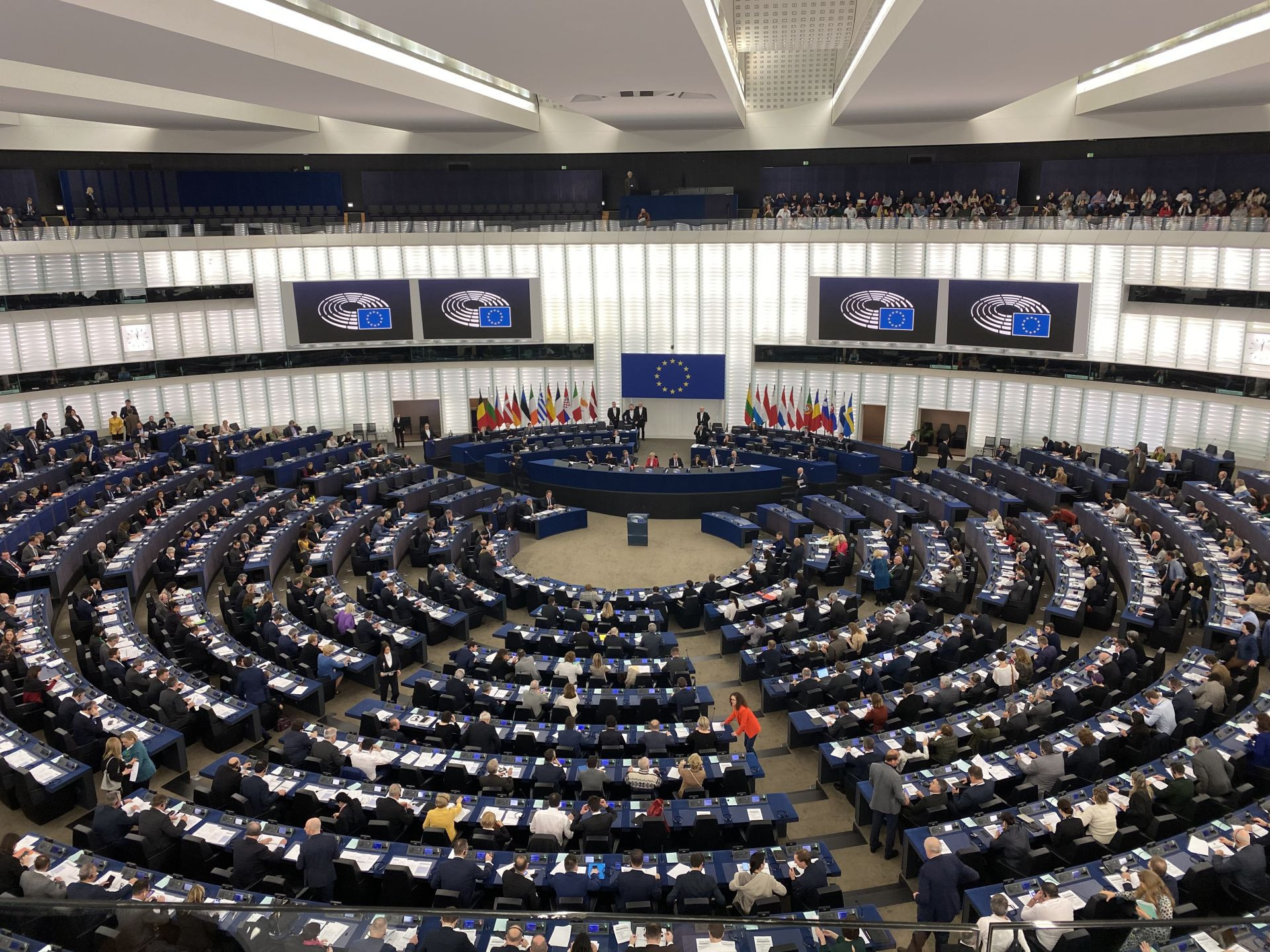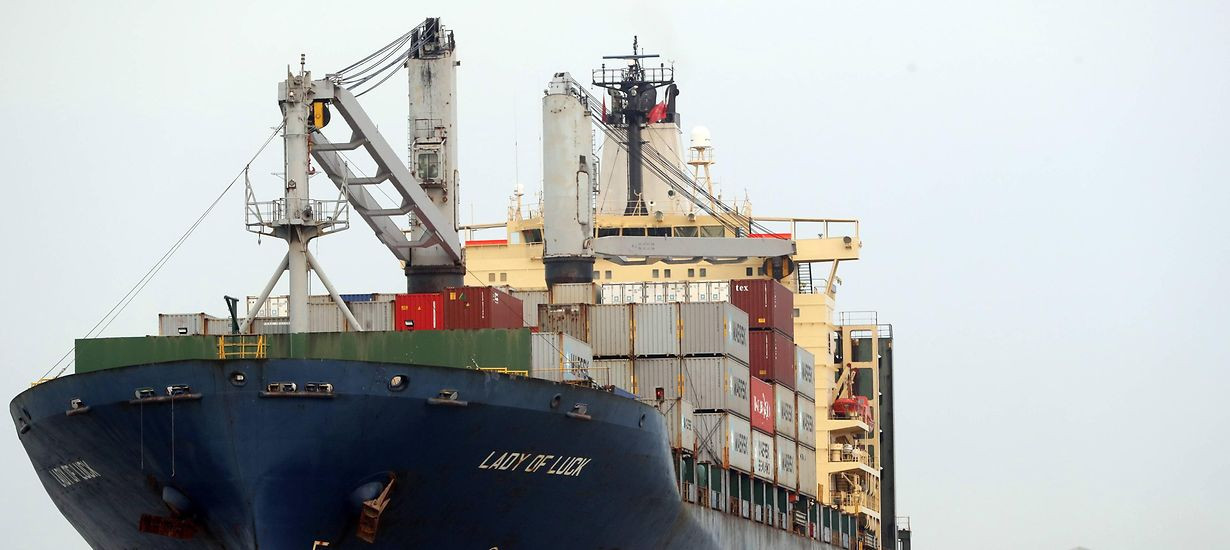EU-Vietnam Free Trade Agreement: The Most Modern and Ambitious Deal
(Baonghean) - The free trade agreement between the European Union (EU) and Vietnam, or EVFTA for short, is considered "the most modern and ambitious agreement ever reached between the EU and a developing country", and was approved by the European Parliament (EP) on February 12.
 |
| EVFTA opens up huge potential for European businesses. Photo: Internet |
THE MOST MODERN, COMPREHENSIVE AND AMBITIVE
According to information officially posted on the EP website, members of the European Parliament (MEP) voted to approve the free trade agreement of the 27-member bloc with Vietnam.
Specifically, late on February 12, the above agreement received 401 votes in favor, 192 votes against and 40 abstentions, being unanimously approved with an overwhelming rate of 63.33%.
In its statement, the EP affirmed that “the most modern, comprehensive and ambitious agreement ever reached between the EU and a developing country” will contribute to setting high standards in the region, and potentially pave the way for a regional trade and investment agreement.
The MEPs stressed that the agreement with Vietnam is “a strong signal in support of free, fair and reciprocal trade, in the context of rising protectionism and serious challenges to rules-based multilateral trade”.
Vietnam is the EU's second largest trading partner in the Association of Southeast Asian Nations (ASEAN), behind only Singapore, with a turnover of goods reaching 49.3 billion euros and services reaching 4.1 billion euros per year.
The main items that the EU imports from Vietnam include telecommunications equipment, electronic devices, footwear, garments, coffee, rice, seafood and furniture.
The EU mainly exports high-tech products, including machinery and electronic equipment, aircraft, means of transport, and pharmaceuticals to the Vietnamese market.
The EU is one of the largest foreign investors in Vietnam, with most of its investments going into the processing and manufacturing industries.
So what is noteworthy about this agreement? Perhaps the most interesting thing is that almost all tariffs will be gradually eliminated between the two sides within the next 10 years.
Specifically, 65% of EU exports to Vietnam will be immediately duty-free, and the remainder – including motorcycles, cars, pharmaceuticals, chemicals, wine, chicken and pork – will be gradually “liberalized” over the next decade.
In return, 71% of Vietnam’s exports to the EU market will be duty-free from the first day the agreement comes into effect, and the remaining 29% will be gradually duty-free over the next 7 years. However, it should be noted that Vietnam’s duty-free exports of sensitive agricultural products such as rice, garlic or eggs will be limited.
 |
| The European Parliament's approval of the EVFTA and EVIPA is an important milestone in the year celebrating the 30th anniversary of the establishment of Vietnam-EU diplomatic relations. Photo: baoquocte.vn |
Meanwhile, non-tariff barriers will be eliminated in the automotive sector, import-export licensing and customs procedures. Vietnam will accept “Made in EU” labels in addition to national origin labels for non-agricultural products.
Regarding geographical indications, 169 typical EU products such as Parmigiano Reggiano cheese, champagne or Rioja wine will be protected in Vietnam, and 39 Vietnamese products will enjoy corresponding treatment in the EU.
In the services sector, EU companies will have better access to business, environmental, postal, banking, insurance and maritime transport services in Vietnam. EU companies will also be able to bid for contracts with Vietnamese ministries, state-owned enterprises... Along with that are legally binding regulations on sustainable development aspects such as climate, labor and human rights...
The EP also unanimously approved with 407 votes in favour, 188 against and 53 abstentions the EU-Vietnam Investment Protection Agreement (EVIPA), which provides for an investment court system with independent arbitrators to resolve disputes between investors and the state.
 |
| Vietnam's garment industry is a sector covered by the newly ratified trade agreement with the EU. Pictured is garment production at a company in the Nam Giang Industrial Park, Nam Dan. Photo courtesy: Viet Phuong |
THE DOOR IS OPEN
Once the EP has approved the agreements with Vietnam, the European Council can finalize the trade agreement. And by the time the Vietnamese National Assembly formally ratifies the agreement, the EVFTA will officially come into effect, most likely in early summer 2020.
Meanwhile, the EVIPA will take a little more time, as it needs to be ratified by all 27 EU member states according to their internal procedures. After that, the EVIPA will replace the bilateral investment agreements that 21 EU member states have signed with Vietnam.
According to Emerging Europe magazine, with the EP approving trade and investment agreements with Vietnam, the country in the emerging European region that has the most opportunity to benefit is Poland, because it is currently Vietnam's largest trade partner in the EU.
“Vietnam is one of the most promising markets in Southeast Asia for Polish companies,” he said, adding that Polish companies in Vietnam have opportunities in the fields of software/IT, heavy industry such as mining, shipbuilding, machinery and equipment for agricultural production, as well as food processing.
As for EP MEP Geert Bourgeois, representing Belgium, Rapporteur of the International Trade Committee on EVFTA and EVIPA, after the results of the vote to approve the agreements with Vietnam, he emphasized: “These advanced agreements that have just been approved open up a unique opportunity to further promote the EU's goal of becoming a geopolitical entity that protects multilateral trade, opposes protectionism and raises labor, environmental and human rights standards around the world.
The agreements will boost prosperity, create new, higher-paying jobs, reduce costs for companies large and small and give them better access to each other's markets.”
As Chairman of the above committee, EP member Bernd Lange, representing the voice of the German member state, affirmed: “History shows that isolation will not help a country change.
That is why Parliament voted in favour of this trade agreement with Vietnam. With it, we strengthen the EU’s role in Vietnam and in the region, ensuring that our voice is heard more than before.”
 |
| Container ship on Saigon River. Photo: Internet |
The European Commission (EC) also welcomed the EP’s decision on 12 February to ratify the EU-Vietnam trade and investment agreements. Trade Commissioner Phil Hogan said: “The EU-Vietnam agreement has huge economic potential and is a win for consumers, workers, farmers and businesses.
And it’s not just about the economic benefits. It shows that trade policy can be a force for good. Vietnam has made great efforts to improve workers’ rights. Once in force, these agreements will increase our ability to promote and monitor innovation in Vietnam.”
In short, EVFTA and EVIPA are new generation agreements, carefully conceived over a long period of time, approved in the context of global trade facing many difficulties and challenges, promising to open up wide doors of opportunity for the signatories.
For Vietnam, this is an opportunity to deeply integrate into the global economy, so it is necessary to take advantage of it effectively to turn these agreements into a great boost and driving force for import-export activities in particular and the economy in general.
And most likely, the implementation of the investment and trade agreement between the EU and its second most important partner in Southeast Asia will be the first bricks laying the foundation for the prospect of signing region-to-region agreements, expanding the scale and prospects in the new era./.


